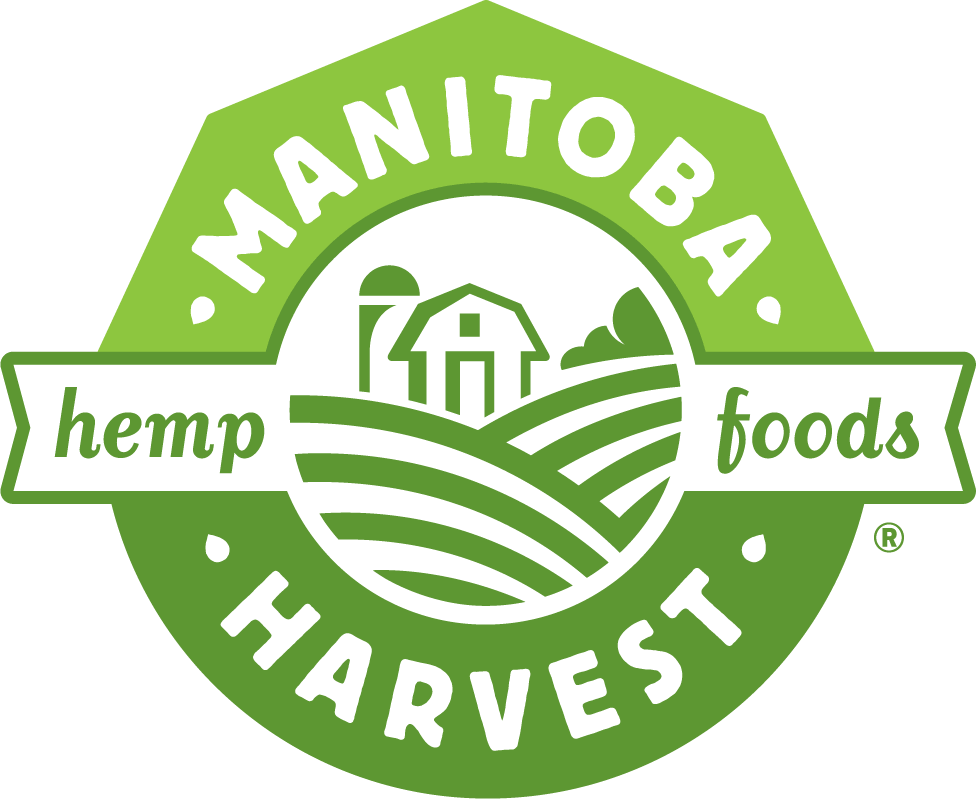
Maybe you’ve seen our signature Hemp Hearts bags on store shelves. Maybe you’ve got one in your fridge right now, waiting to be sprinkled onto your next bowl of yogurt of leafy green salad. Is your bag of Manitoba Harvest Hemp Hearts green, or is it orange?
Manitoba Harvest offers two different options when it comes to buying Hemp Hearts: natural (in an orange bag), and organic (in a green bag). But what on earth is the difference?
Or, should we say, what in the earth is the difference?
The short answer is: not very much. For a farmer to become certified organic in Canada, their fields must be free of any synthetic fertilizers or pesticides for three years.
But in reality, many growing practices employed by our growers are not unique to either certified organic or natural hemp seed farmers. To learn more about what the nuances between a “natural” bag of hemp hearts and an “organic” one, we first must learn more about the powerful little hemp seed.
Certified Seed
Hemp is a unique plant in a lot of ways. It roots deeply and aggressively, grows tall, and competes well with weeds. However, despite hemp’s hearty qualities, it is a sensitive seed and seedling; chemicals and other synthetic compounds can hinder the successful growth of hemp plants and can be more expensive for farmers to adopt than other natural, time-tested processes.
Hemp is a specialty crop, so not a lot of acres are grown, around 85,000 acres of hemp were grown in Canada compared to nearly 21 million acres of Canola grown in 2019. All hemp seed is non-GMO, which means nothing has been genetically modified in the seed that Manitoba Harvest’s farmers plant each spring. But that doesn’t mean there aren’t complex breeding techniques that go into producing the perfect little hemp heart. In fact, the Canadian government holds hemp farms to extremely high breeding standards, and all our seeds are cultivated to three stages of “pedigreed status.”
Why so many stages? Because it’s important that the seeds Manitoba Harvest gives to its farmers are as perfect as possible. At each stage, from the breeder seed all the way to the certified seed, Manitoba Harvest is there, doing our due diligence. Our agronomists make sure seed growers are removing unsatisfactory plants and testing the plants for purity, consistency and THC levels below 0.3%. We do purity and germination tests on all seed to make sure we can share the best possible seed with our farmers.

Organic vs. Natural
So now Manitoba Harvest’s farmers have premium seeds they’ll use to grow the crop that will be harvested for grain and ultimately dehulled into a bag of hemp hearts or crushed for oil and milled for protein powder. But our farm team’s job of closely monitoring practices isn’t over; in fact, it’s only just begun.
Even our non-organic farmers have rigorous standards, and agronomists like Scott Wolfe are monitoring every step of the way. “We know where each of our hemp fields are and how they are progressing through the growing season, we need visibility from seed to shelf,” Wolfe says. “All activities are monitored on our farms– what bin it’s stored in, previous crops, soil type, growing conditions; we know every stage in the process.”
One such rigorous standard that our agronomists look out for is that absolutely no chemical sprays like fungicide, herbicide, and insecticide can be used on any of our hemp crops. This is written into our contracts with farmers.
Which is why you have to dig pretty deep to find difference between organic and natural hemp hearts: it’s literally in the soil. Organic famers’ soil must be free of synthetic fertilizers and pesticides for at least three years to become certified organic in Canada. The main difference is that our natural growers use synthetic fertilizer to grow their crops, whereas organic producers use manure or some other organic fertilizer source.
Remember: hemp is a hearty plant. It grows best when given proper soil and a clean field to get a head start on weeds. Because it is one of the fastest growing plants in the world, it out competes other plants reaching for sunlight. None of our growers – neither organic nor natural – use any sprays for in crop weed control, its written in our agreement with farmers. It’s also why most of our natural farmers employ the exact same toolbox of solutions as organic growers when dealing with common problems like insects, weeds, and diseases.
There’s a common misconception that conventional farmers are just spraying whatever problem comes their way. In reality, synthetic sprays are very expensive, use a ton of water and fuel and consumers don’t want them on their food- all good reasons to avoid spraying on crops if not necessary. The hemp plant grows best when employing non-chemical solutions (such as proper soil cultivation to remove weeds rather than spraying them). The same standards, it should be noted, apply to the hemp seed cleaning process – Manitoba Harvest monitors our cleaning facilities closely, and processes batches of organic seed before processing batches of natural seed so as not to allow natural seed to mix with organic. Frequent system flushes and food grade cleanliness standards are supervised as well, from farm to table.
When Manitoba Harvest was a young hemp company, organic farms made up about 10% of our business. Back in the late 90s, it just wasn’t as common a growing practice. But that’s changed a lot: the 2020 growing season will be the first year that organic growing will overtake conventional!
Whether you are buying our organic hemp hearts or our natural hemp hearts, you know you’re getting the best possible hemp product – grown by farmers who really care about their crops and monitored by Manitoba Harvest agronomists who obsessively demand perfection. Because the amazing, powerful hemp plant deserves our respect!



